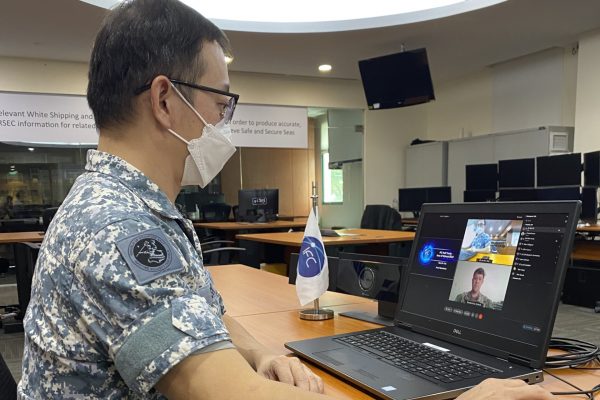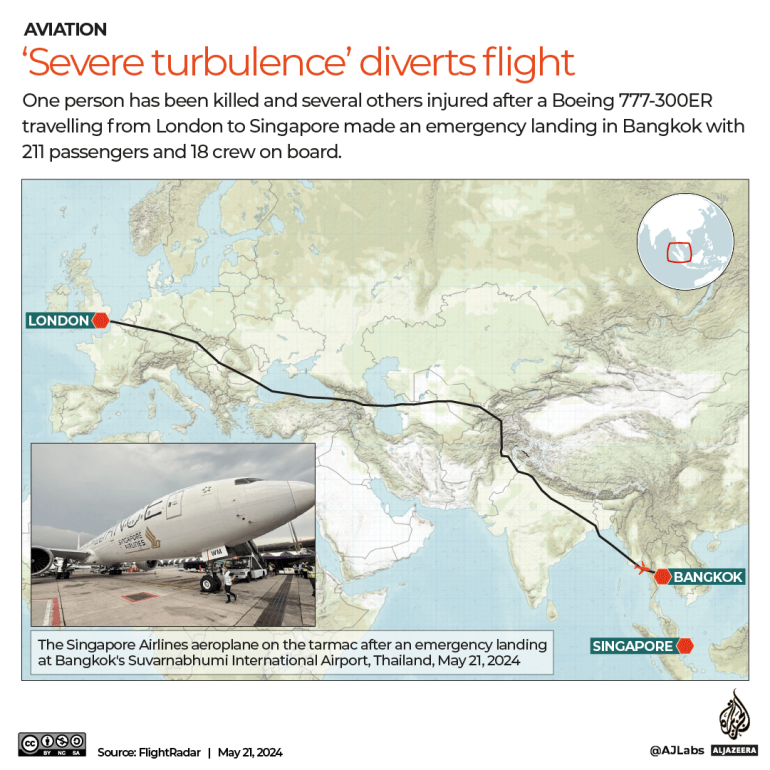
Our Republic of Singapore Navy (RSN) serviceman at the RSN’s Information Fusion Centre (IFC) providing an update on the regional maritime situation during Exercise SEACAT’s maritime security webinar.
he Republic of Singapore Navy (RSN) is participating in the annual United States Navy (USN)-led multilateral Southeast Asia Cooperation and Training (SEACAT) exercise from 10 to 20 August 2021. First established in 2002, the exercise is in its 20th edition. This year, navies and coast guards from 21 nations[1] came together to enhance cooperation and information-sharing to strengthen regional responses against maritime terrorism and piracy threats in Southeast Asia[2].
This year’s Exercise SEACAT comprises a three-day maritime security webinar followed by a sea phase. The webinar brought together subject matter experts to discuss and exchange best practices to deal with maritime security threats in Southeast Asia. As part of the webinar, the RSN’s Information Fusion Centre (IFC) provided an update on the regional maritime security situation. This was followed by a series of simulated drills, such as ship-boarding, held in the Straits of Malacca and Singapore and in the South China Sea. The at-sea components of the sea phase were coordinated through the combined exercise headquarters set up at the Changi Command and Control Centre in RSS Singapura – Changi Naval Base. Acknowledging the transnational nature of maritime threats, the IFC and its attached International Liaison Officers led in the exchange and conduct of real-time information sharing and sense-making in order to coordinate operational responses of participating aircraft and ships[3] out at sea. These efforts can help to strengthen collaborative efforts in countering maritime security threats in the region.

Our RSN serviceman and International Liaison Officers utilising the IFC Real-time Information-sharing System to facilitate real-time operational responses for the sea phase of Exercise SEACAT.
LTC Lester Yong, Head IFC, highlighted the importance of cooperation to ensure maritime security. “Exercise SEACAT has grown from strength to strength, bringing together like-minded maritime stakeholders to strengthen practical cooperation,” he said. “This year, despite the challenges of the COVID-19 pandemic, we continued to exercise information sharing processes through the IFC’s Real-time Information-sharing System, enhancing operational responses at sea.”
The RSN’s continued participation in SEACAT reflects its strong support for practical cooperation in maritime security and continued engagement efforts with navies and coast guards from the region and across the world.









